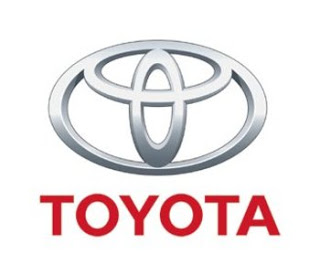
Toyota Motor Corporation has signed an agreement with Kazusa DNA Research Institute, Eurofins Genomics K.K., and GeneBay to license Toyota's unique GRAS-Di DNA analysis technology that can dramatically accelerate selective breeding. Since the announcement of this technology in September 2016, it has received acclaim from Kazusa DNA Research Institute, Eurofins Genomics, and GeneBay, and from November 2017, will be put to practical use in contract-based analysis businesses in Japan and abroad.
Until now, selective breeding involved repeated selection and mating of parent varieties, based on extensive past results, and evaluation of their offspring, in order to select new varieties with the desired characteristics. In September 2016, Toyota announced that it had paired its proprietary sample preparation technology with a next-generation sequencer to develop GRAS-Di, a new technology that can substantially simplify the process of identifying and selecting specimens with useful genetic information. It addressed limitations posed by conventional technology, enabling significant reductions in cost and man-hours. As a result, cost has been cut by approximately two-thirds and man-hours by approximately nine-tenths of the previous level.
In signing the agreement, the parties described their evaluation and expectations. Kazusa DNA Research Institute indicated that "We expect that the technology will not only be used by research and development organizations but also widely by private companies." Eurofins Genomics commented that "The ability of this technology to analyze a large number of DNA samples easily and quickly at low cost will support further research and will significantly contribute to addressing world food and energy problems." GeneBay noted that "It is common industry knowledge that it is necessary to acquire a large amount of DNA and data, which was a hurdle for spreading the technology and applying it. We expect it to be widely used in agriculture and livestock, and many other industries."
It is expected that GRAS-Di can be applied to general selective breeding, not only in agriculture, but for wide-ranging development in areas including the livestock, forestry, and fishery industries. Toyota believes that by introducing the technology to companies that intend to expand their businesses globally, the technology will contribute to addressing global issues through increased production of biofuels and foods and improvement of the disease resistance of crops. Consequently, Toyota will continue to actively disclose and share information in an effort to spread technology further.
GRAS-Di: Genotyping by Random Amplicon Sequencing-Direct, Technology that amplifies thousands to tens of thousands of locations on the genome with a high degree of repeatability as a means of amplifying the sequence of an analysis sample using a proprietary primer (nucleic acid fragments necessary for the synthesis and replication of DNA).
A device capable of analyzing tens of millions to billions of locations on the genome at the same time.History of Toyota's biotechnology/afforestation and agricultural support projects
In order to prepare for the population, food, and environmental challenges of the 21st century, and to support the sustainable growth of the automobile industry in general, Toyota found it necessary to create a business that contributes to the environment. Consequently, the company established its Biotechnology and Afforestation Laboratory in Miyoshi City, Aichi Prefecture in May 1999, which has engaged in business activities focusing on R&D and demonstration activities, in addition to activities that contribute to the community and society.
As part of Toyota Global Vision, announced in March 2011, the company is committed to making ever-better cars and contributing to the enrichment of people's lives and the community. This facilitates the sustainable growth of the company, as well as the construction of a stable management foundation. In April 2011, Toyota began work to improve the rice production process with the aim of contributing to the sustainable growth of agriculture. In April 2014, the company launched a cloud service (Housaku Keikaku), which applies the concept of the Toyota Production System, production management techniques, and process improvement know-how from the automobile business to agriculture. Toyota also provided improvement support services unique to the company and has promoted improvements to productivity and human resources at agricultural production sites.
Currently, the Biotechnology and Afforestation Laboratory is engaged in business activities that will widely contribute to enriching communities. This is intended to be accomplished within a scope ranging from research into basic technologies to the improvement of work sites, all within the fields of environmental contribution and the agricultural and livestock industry.
Overview of Kazusa DNA Research Institute, Eurofins Genomics, and GeneBay
Kazusa DNA Research InstituteThe Kazusa DNA Research Institute was established in 1991 as the DNA Research Institute in Kisarazu City, Chiba Prefecture. Through its main facility, the Kazusa Academia Park, it is engaged in life science and technology research centered on genome research, while providing industrial support and striving to contribute to society.Eurofins GenomicsEurofins Genomics is a multinational bioanalysis company with 375 analysis and testing laboratories and over 30,000 employees in 41 countries. Its genomics division has bases in Japan, the U.S., Germany, and India, providing products and contract services globally in genome research and development, including Oligo DNA synthesis, artificial gene synthesis, and next generation sequencing analysis.GeneBayGeneBay is a contract services start-up company that provides a wide range of IT bioanalysis technology, including cutting-edge genome analysis. It provides services in a wide range of fields including food, medical care, energy, agriculture, chemistry, and the environment. Furthermore, it supports research for commercialization and practical application, along with genome information analysis consultation and contract-based analysis. By fusing biotechnology and IT, the company aims to realize a society that can utilize genome information.
Toyota inks pact with kazusa dna research institute, eurofins genomics, genebay for gras-di dna analysis technology